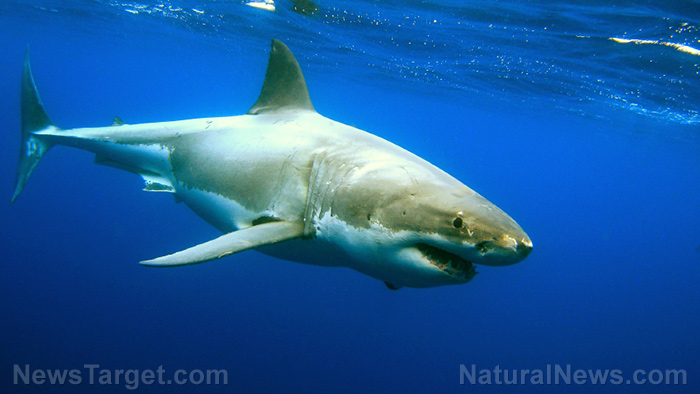
Sharks and the dangers of industrial fishing
Findings from the study, which were published in PLOS Biology, showed that sharks are rarer in habitats closer to large human populations and fish markets. Researchers also discovered that the average body size of sharks and other marine predators were significantly smaller in these locations because the animals are often caught and killed for their meat and fins.
Humans are hunting and killing sharks faster than the animals can repopulate.
Because of factors like delayed maturation, slow reproductive rates and few offspring, sharks are particularly vulnerable to extinction. At least a quarter of all known shark species are considered threatened or endangered.
Sharks are apex predators and their declining population is linked to dangerous imbalances in marine ecosystems around the globe. Without enough sharks, the health and productivity of oceans and dependent livelihoods and economies are constantly threatened.
Years of exploitation have greatly reduced shark populations, with fishermen hunting sharks for their cartilage, fins, liver oil and meat. In East Asian societies, shark fins are in demand for shark fin soup, a popular and expensive dish served as a symbol of prosperity.
Because of the high demand for shark fin soup, dumplings and other shark fin dishes served in restaurants worldwide, finning results in the death of at least 73 million sharks annually.
Shark finning isn't just a wasteful practice, it is a cruel one as well.
Since shark fins are in demand and shark meat isn't as valuable, fishermen take only the fins and leave the rest of the body behind. Most of the time sharks are finned alive then thrown back into the sea, where the animals bleed to death, suffocate or are eaten by other animals.
Human activity and shark distribution
According to the study, the average body size and number of sharks, along with other marine predators, have decreased near cities with a population of over 10,000 people and associated fishing fleets.
The minimum distance from people and fishing without any significant effect was 1,250 km, which is greater than previous studies have suggested. Researchers posit that the distance has increased to adjust for the increased distances modern fishing boats can now travel.
Findings also showed that sharks were only observed at 12 percent of the sites monitored for the study. Tom Letessier, the study's lead author, explained that human activity is a major factor that affects shark distribution.
While only 13 percent of the world's oceans can be considered "wilderness," sharks and other predators are more common and significantly larger at distances beyond 1,250 km from people. This implies that marine predators may be unable to thrive near human activity, proving that human over-exploitation of the seas has many adverse effects.
The importance of Marine Protected Areas (MPAs)
The researchers studied video footage taken at 1,041 sites throughout the Indian and Pacific Oceans to determine the biggest possible range of conditions and habitats. The sites varied in proximity to fish markets and human populations.
Some were close to cities, while others were at least 1,500 km away.
The research team studied sharks and other free-swimming predators using cameras attached to canisters full of bait. Overall, they recorded 23,200 animals belonging to 109 species. Data was also gathered from 841 individual sharks from 19 different species. (Related: Great Barrier Reef on brink of 3rd major coral bleaching in 5 years, scientists warn.)
Additionally, the findings revealed that shallower water habitats with depths less than 500 m were crucial for marine predator diversity. Letessier explained that sites that are both shallow and remote must be identified and prioritized for conservation.
He added that there are many shallow hotspots near human markets that aren't appropriately secured. Marine Protected Areas (MPAs) should be better enforced and extended to protect the last refuges where sharks remain abundant.
Letessier concluded that large marine predators like sharks, in particular, have a unique and important role in the ocean ecosystem. Sharks “...control populations of prey species, keep those populations healthy by removing sick or injured animals, and transport nutrients between loosely connected habitats over vast distances.”
Learn more about the role of human settlements in the decline of animal populations at Extinction.news.
Sources include:
Please contact us for more information.























